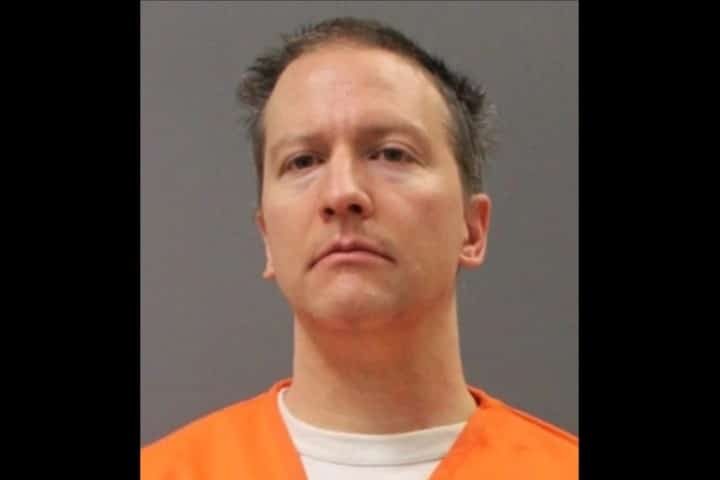
Former Minneapolis policeman Derek Chauvin has filed a major appeals brief cataloging the improprieties in his trial for the “murder” of long-time drug addict and career criminal George Floyd.
Convicted a year ago after public threats of rioting if he were acquitted, Chauvin’s 72-page plea details prosecutorial misconduct and reversible judicial errors. The brief demands either a reversal of his conviction, reversal and a new trial, or reversal and a new sentence that comports with state guidelines.
Chauvin, who landed a 22-year-six-month sentence, then pleaded guilty to federal civil-rights charges, filed a motion for a new trial last year.
Floyd died of a fentanyl overdose on May 25 as Chauvin restrained him during a lawful arrest.
ME Says Floyd Died of Fentanyl OD
One of the brief’s key facts is that Chauvin did not kill Floyd with a knee-to-neck restraint on the 6-foot-4, 223-pound giant. Instead, Floyd killed himself by ingesting a megadose of fentanyl right before his arrest.
“Hennepin County Attorney Michael Freeman and his attorneys prosecuting the case met with Hennepin County Medical Examiner Dr. Andrew Baker the day after Floyd died and after Baker had completed his autopsy but prior to Baker issuing his medical findings,” the brief says:
Baker told the attorneys there was no physical evidence Floyd died of asphyxiation. Baker said Floyd’s heart condition was a major contributing factor in his death. Baker said outside the circumstances of this case, he would have concluded that the manner of death was a fentanyl overdose. Finally, Baker admitted that the placement of Chauvin’s knees on Floyd’s back would not have cut off Floyd’s airway — i.e., Floyd did not die from Chauvin cutting off Floyd’s airway.
These facts alone mean Chauvin never should have been charged, much less prosecuted. But Baker also met with county prosecutors before he issued his final report.
“Baker issued his findings on May 26, 2020,” the brief continues:
Baker found in addition, Floyd’s lungs were two to three times their normal weight. Id. Floyd had cannaboids, fentanyl and methamphetamine in his system. Floyd had recently been ill with COVID-19 and tested positive in his autopsy. Floyd had arteriosclerotic and hypertensive heart disease, hypertension, and sickle cell trait. Floyd’s [sic] had an enlarged heart due to high blood pressure and 90% and 75% constriction of his right and left coronary arteries — all of which Baker admitted could cause sudden death. Floyd had no neck injuries. The fentanyl amount in Floyd (11.3 nonograms) was three times the amount considered fatal. Baker admitted the methamphetamine in Floyd’s toxicology report caused Floyd’s heart to work harder thereby increasing risk of heart failure. Baker admitted Floyd had no evidence of asphyxia and no neck or back injuries at all — i.e., no strangulation.
Despite all that, Baker claimed “Floyd’s heart stopped due to the officers arresting him including compressing his neck even though there was no evidence Floyd suffered any neck Injuries.”
Other Issues
Myriad other issues should also give Minnesota’s appeals court a reason to reverse Chauvin’s conviction, the brief says, including pretrial publicity, the threat of violence if the jury did not convict — including that from U.S. Representative Maxine Waters — and the exclusion of a key witness in the car with Floyd.
Another reason: The city settled with Floyd’s family for $27 million during the trial, which suggests that Chauvin was guilty.
As well, the judge went well beyond sentencing guidelines and did not sequester until deliberations. Jurors lied about their knowledge of the case and about marching in Black Lives Matters protests, and confessed that they were terrified to acquit for fear of major rioting.
Famed lawyer Alan Dershowitz said an appeals court must reverse the verdict because of the judge’s failure to sequester the jury, and, of course, Waters’ irresponsible, incendiary remarks. The threat, Dershowitz said, was clear:
If you don’t convict on the murder charge, on all the charges, the cities will burn, the country will be destroyed, seeped into the jury room because the judge made a terrible mistake by not sequestering the jury. So the judge himself said, this case may be reversed on appeal. And I think it might be reversed on appeal. I think it should be reversed on appeal.
H/T: Legal Insurrection



